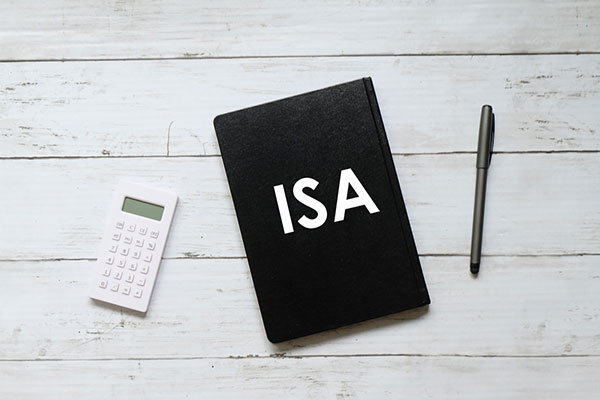Where pro fund buyers are investing their ISAs this year
22nd February 2023 10:21
by Sam Benstead from interactive investor
From healthcare and emerging markets, to UK shares and Asia, this is what professional investors like this ISA season.

With the 5 April ISA deadline fast approaching, DIY investors are thinking about where they should invest their hard-earned money.
Stock markets have started the year strongly, with US, UK and Chinese shares rising more than 5%, but there are many clouds on the horizon darkening the outlook, from geopolitical tension to sticky inflation.
We asked expert investors where they are putting their money this spring.
- Invest with ii: Top ISA Funds | Top Junior ISA Funds | Open a Stocks & Shares ISA
UK equity income and emerging markets
Buying UK dividend-paying shares is an antidote to the tricky investing environment for Ruli Viljoen, head of manager selection at Morningstar Investment Management. She likes Artemis Income, a UK equity income fund yielding 3.8%, that appears on interactive investor’s Super 60 list of investment ideas.
Viljoen says: “While UK equities fared reasonably well in 2022, outperforming many developed market equities, this followed an extended period of poor returns with UK equities languishing at the bottom of most league tables. As a consequence, the valuation of the UK market remains exceptionally low versus history.”
Viljoen thinks that the resurgence of value shares will continue, which will play into the hands of this fund. The top stocks include BP, Pearson and RELX, with financial stocks the biggest sector at 30% of the fund.
- Active or passive: the ultimate guide to investing your ISA
- The simple maths that can make you an ISA millionaire
- ISA tips: around the world in eight funds and trusts
Viljoen adds: “Free cash flow is the cornerstone of the process. The managers primarily hunt for companies with attractive free cash flow yields, with the goal of constructing a portfolio that generates cash flow in excess of the market.
“The team spend a significant amount of time appraising company management and believe that management's ability to allocate capital efficiently is crucial.”
She is also investing in JPMorgan Emerging Markets, an investment trust and member of the Super 60. Viljoen says that the opening up of China has improved the outlook for emerging markets and a period of the sector being out of favour means that valuations are now attractive.
She adds: “JPMorgan Emerging Markets is managed by a highly experienced and long-tenured manager in Austin Forey. He is backed by a team which, importantly, has significant resources dedicated to the Chinese equity market, both onshore and offshore. The approach results in quality and growth biases, with a focus on domestic demand and consumption, and has shown considerable success over time.”
Asia and healthcare
Isobel Gingell, investment director at Brooks Macdonald, says that investors should have a mix of styles in their portfolios, as falling inflation will be good for growth stocks, but there is a lot of uncertainty about where prices will move next.
“Given this uncertainty, it is important to maintain a balanced approach between growth and value as we enter ISA season. This includes growth in US and tech, plus value in the UK and Asia,” she says.
Gingell expects the reopening of China’s domestic economy to be particularly good news for Asia funds, and says that this year she is investing in Federated Hermes Asia ex Japan to benefit from the economic bounce. Its top stocks are Samsung (LSE:SMSN) and Chinese internet firms Baidu (NASDAQ:BIDU), JD.com (SEHK:9618) and Alibaba (NYSE:BABA).
- Eight easy ways to boost your ISA returns
- My first four years as an ISA investor
- ISA ideas: alternatives to the most-popular funds and trusts
On the growth side, she is buying Polar Capital Healthcare Opportunities fund.
“Last year, ‘Big Pharma’ remained strong. However, this fund offers potential for further high growth and the potential to make a significant positive impact on society through investments in cutting-edge biotechnology. For example, the fund invests in companies at the forefront of developing treatments and cures for illnesses such as diabetes, cancer and neuromuscular diseases,” she said.

Small stocks and value
Robert Burdett, manager of the CT MM Navigator Boutiques fund, highlights Jupiter UK Dynamic and Polar Capital European ex UK Income as exciting opportunities at the moment. Both funds are held in his portfolio.
“We believe in taking stock market risk over the long run, as over at least a seven-year time horizon investors are almost certain to get a positive return.
“This is particularly pertinent today as we just came out of one of the worst-ever years for American shares. Difficult years for markets can be followed by good years, even if there is always something to worry about: now it is interest rates and inflation. Value and small-cap shares look cheap at the moment and should do well in this environment.”
Jupiter UK Dynamic buys small UK firms, while Polar Capital European ex UK Income buys European stocks that have high dividend yields. The latter has a value bias, according to Morningstar, the fund data provider.
Dzmitry Lipski, head of funds research at interactive investor, is also backing value shares, but prefers to see fund managers focus on solid businesses, given the current backdrop of rising inflation and interest rates.
- Watch our Fundamentals video: what is a passive fund and is this the best way to invest?
- Watch our Fundamentals video: what does a fund manager do?
“Value stocks that have the ability to grow profits above inflation and pay steady or rising dividends provide an extra cushion to protect real returns. As such, value-oriented sectors such as financials and energy could do well,” he said.
He recommends the Artemis SmartGARP Global Equity fund, an interactive investor Super 60 fund, which uses computer-driven and human management to find stocks that are undervalued but still growing.
“GARP (growth at a reasonable price) strategies invest in stocks that not only show higher growth characteristics than the market, but that are also trading at a lower valuation than they are intrinsically worth. As a result, investors are exposed to less downside risk than a pure ‘growth’ strategy,” Lipski says.
These articles are provided for information purposes only. Occasionally, an opinion about whether to buy or sell a specific investment may be provided by third parties. The content is not intended to be a personal recommendation to buy or sell any financial instrument or product, or to adopt any investment strategy as it is not provided based on an assessment of your investing knowledge and experience, your financial situation or your investment objectives. The value of your investments, and the income derived from them, may go down as well as up. You may not get back all the money that you invest. The investments referred to in this article may not be suitable for all investors, and if in doubt, an investor should seek advice from a qualified investment adviser.
Full performance can be found on the company or index summary page on the interactive investor website. Simply click on the company's or index name highlighted in the article.
Important information: Please remember, investment values can go up or down and you could get back less than you invest. If you’re in any doubt about the suitability of a Stocks & Shares ISA, you should seek independent financial advice. The tax treatment of this product depends on your individual circumstances and may change in future. If you are uncertain about the tax treatment of the product you should contact HMRC or seek independent tax advice.